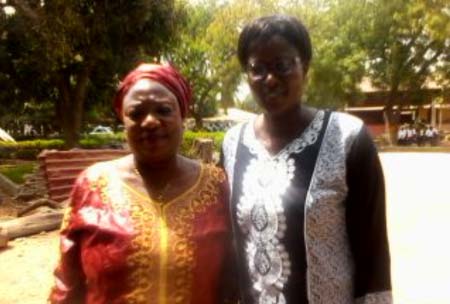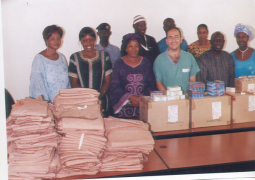
The training on the theme: “Curbing Illegal Migration Through Skills Acquisition”, and funded by the Spanish Migration Fund and ECOWAS in collaboration with the Government of The Gambia, would see the trainees shared with 15 Waste Management Moto Cycles at the end of the training.
In her welcoming remarks, Mrs Jahou S. Faal, Director General of GTTI, described the occasion as yet another milestone in the struggle to prevent the youth from entering into dangerous and life-destroying endeavours in pursuit of the so-called greener pastures using the back way to Europe.
The GTTI director general added that the training was in line with the institute’s mandate of providing relevant and viable programmes that are sustainable, as well as forging beneficial partnerships with local and international partners.
“Waste Management is a major challenge in almost all communities, given the diversity of the solid waste and its exponential growth,” she stated.
In developing countries the problem becomes even more acute due to cultural and economic reasons, as it was the case in most countries in Africa, she said.
“Most of the waste is deposited in the open dumps near watercourses and in residential areas, thus increasing and aggravating problems of public health,” she pointed out, adding that sanitation and solid waste management became a top priority for the Government.
“Training opportunity like this can show not only appropriated waste management solutions from the simplest and robust to those that are more sophisticated, but also demonstrate the application of each solution to the correct context,” Madam Faal stated.
It was hoped that at the end of the training the graduates would have had the requisite skills that would empower them to participate in a competitive market to contribute effectively to the socio-economic development of their communities, she said.
In her opening statement, Naffie Barry, Permanent Secretary, Ministry of Trade, Industry, Regional Integration and Employment, said the aim of the training was to complement Government’s efforts to further provide skills for youth to bring about much needed social and economic changes and ultimately curb illegal migration.
“It is hoped that participants who went through the training would be properly equipped to make positive contributions towards the realization of a sound national waste management scheme and most importantly to be self-employed,” Madam Barry added.
“You would agree with me that youth unemployment threatens socio – economic progress and may potentially lead to other social/developmental challenges,” she stated, adding that it impedes progress and results in monumental financial burden for families and societies at large.
Youth unemployment had been attributed to many factors including a mix-match in demand and supply of skills, PS Barry said, adding that it was imperative for the country to introduce innovative approaches in dealing with youth unemployment through training on waste management focusing on diverting waste from landfill disposal to other management options.
The training could not have come at a better time as waste management had always been a challenge to Government, she said, adding that the knowledge acquired would help to achieve better quality of life for communities. The need for building capacity on waste management practices continues to be a top priority for Government as evident in earlier interventions through a pilot phase funded under the Gambia Priority Employment Programme.
GAMJOBS had a total of 60 youths mobilized, trained and certified on the technical aspects of labour intensive methods, she noted.
“It is Government’s wish that youth empowerment training reaches all regions in order to curb the rural urban drift which is a preparatory ground for illegal migration,” she pointed out.
She urged municipalities who would be hosting these young people to welcome and provide them with the required support, exposure and mentorship.
“Let us build a new generation of waste managers who will move the waste management sector forward,” said Madam Barry. She expressed appreciation and thanks to their development partners for the tremendous support given to the Government of The Gambia in a shared ambition to curb illegal migration, and as well called on them to continue working together to improve the quality of life, create employment opportunities and turnaround the plight of waste management in the country.
Alfredo Gadea, Spanish Embassy representative, said their first action in The Gambia was supporting GTTI.
He described the waste management project as quite important to them and wants the participants to be part of something big, whiling calling on them to take advantage of the training.
“It is the responsibility of the participants to take the lead in bettering the condition of waste management,” he stated, further calling on them to take the opportunity to improve the condition of the nation in waste management.
This is just the beginning for them to make their country proud, he concluded.


